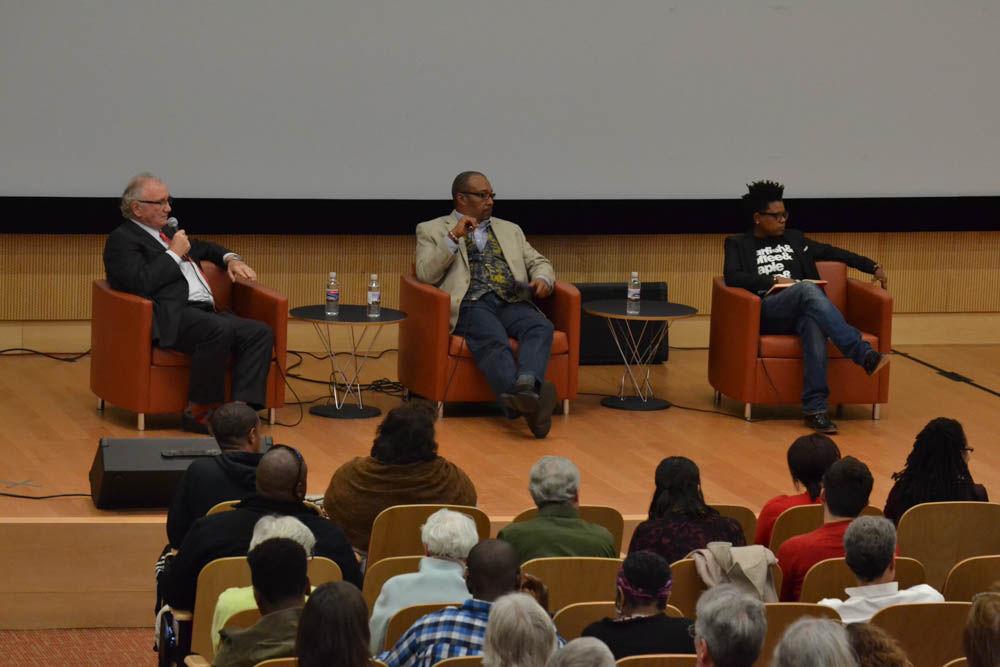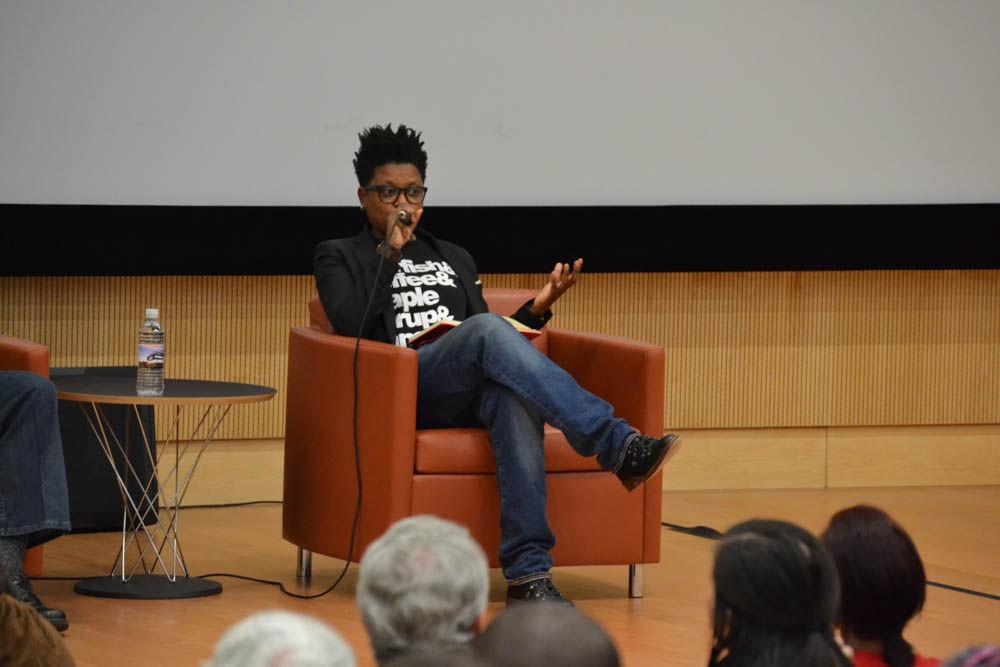The first documentary ever devoted solely to African-American English, “Talking Black in America” premiered in Hunt Library Thursday evening.
The brainchild of Walt Wolfram, professor of English linguistics, the feature-length film was brought to life under the Language and Life Project. The Language and Life Project is an NC State organization headed by Wolfram, focused on documenting and educating about the dialects and diversity of speech in North Carolina and in other parts of the world.
Based on his lifelong research, beginning in Detroit in 1965, Wolfram created the documentary to explore different black dialects across the eastern and midwestern United States. The film gave insight into the many ways that African-American English has contributed to the way that Americans talk today.
“African-American English is the most controversial, the most reviled and yet the most influential dialect in English in its history,” Wolfram said. “We’re proud to do this, and I feel like it’s also an obligation. I got the idea for it while watching CNN, and they had a program that was called ‘Black in America,’ and I turned to my wife and said, ‘they need a program on talking black in America.’”
The film tracked the history of African-American English from its creole roots in the deep south to the hip-hop movement in New York City and modern social media. The screening hosted a panel of three, including Shirlette Ammons, a Durham-based poet and musician, Kwesi Craig C. Brookins, associate professor of psychology and Africana studies, and Wolfram.
The film also provided perspective into language-based discrimination placed on African-American English and misconceptions placed upon it by American society.
“All students, and particularly students of color, understand that there is nothing that comes out of our culture that doesn’t make sense,” Brookins said. “For too long, that has been the idea that our language and other things by black folks don’t matter. It always has some sense to it that we have to uncover and connect with who we are and where we have been.”
Brookins noted when answering questions that the hidden value of African-American English in the black community.
“It is much a part of the flow of our existence that we don’t think about,” Brookins said. “So it doesn’t become a part of what we emphasize because it is so integrated not just in who we are but because it has permeated so many places in the world.”
Many community members, students and faculty attended the event to learn more about the film’s history and its role in promoting dialogue around the value of cultural diversity.
“I notice that when we talk about language in a formal, academic sense, we never talk about this,” Andrew Hardwick, a junior studying philosophy, said. “Whenever you watch something like this, no matter who you are, you learn a new perspective and gain wisdom into how you communicate with different kinds of people.“
Referring to her cultural pride in African-American English, Ammons paraphrased a quote by Nikki Giovanni and personalized Brookins’ comments.
“‘I hope no white person ever has cause to write about me because they never understand that black talk is black wealth,’” Ammons said. “That’s what I think is most magnetic when I see Ms. Toni, when we greet each other. It’s not just the energy from not seeing each other: It’s all of the talk and language that supports that relationship.”
During the beginnings of the documentary, Wolfram initially struggled with finding a black producer to help with its creation. Rather than undertake the film entirely by himself, Wolfram enlisted the help of black cultural experts to aid in editing.
“It’s very much a team project,” said Wolfram. “For many years, I hesitated because I’m white — in case you didn’t notice. I felt that it should be a black production, but as I talked to others who I knew in the profession, and encouraged them to do it, they said ‘we just don’t have the resources.’”
Looking forward, Wolfram and his colleagues are in the process of incorporating a linguistic diversity program into the Office of Institutional Equity and Diversity. He says that he desires to push NC State and other American universities to include assets to educate students and faculty against common stigmas and misconceptions when addressing linguistic differences.
“We hope that it does change the perception of a lot of African-American students on campus,” Wolfram said. “NC State suffers from the same kinds of impressions, stereotypes and misunderstandings of speech differences as any other place.”
“Talking Black in America” will tour college campuses across the U.S. and be distributed internationally in the coming as part of a four-part documentary mini-series related to African-American language. A second presentation of the documentary will take place on Tuesday, April 4 at 7 p.m. in Witherspoon Student Center.
Guest panelist Shirlette Ammons answers questions from the audience after the premiere of "Talking Black in America" in the James B. Hunt Jr. Library Auditorium on Thursday. Ammons is a poet and musician based in Durham.









